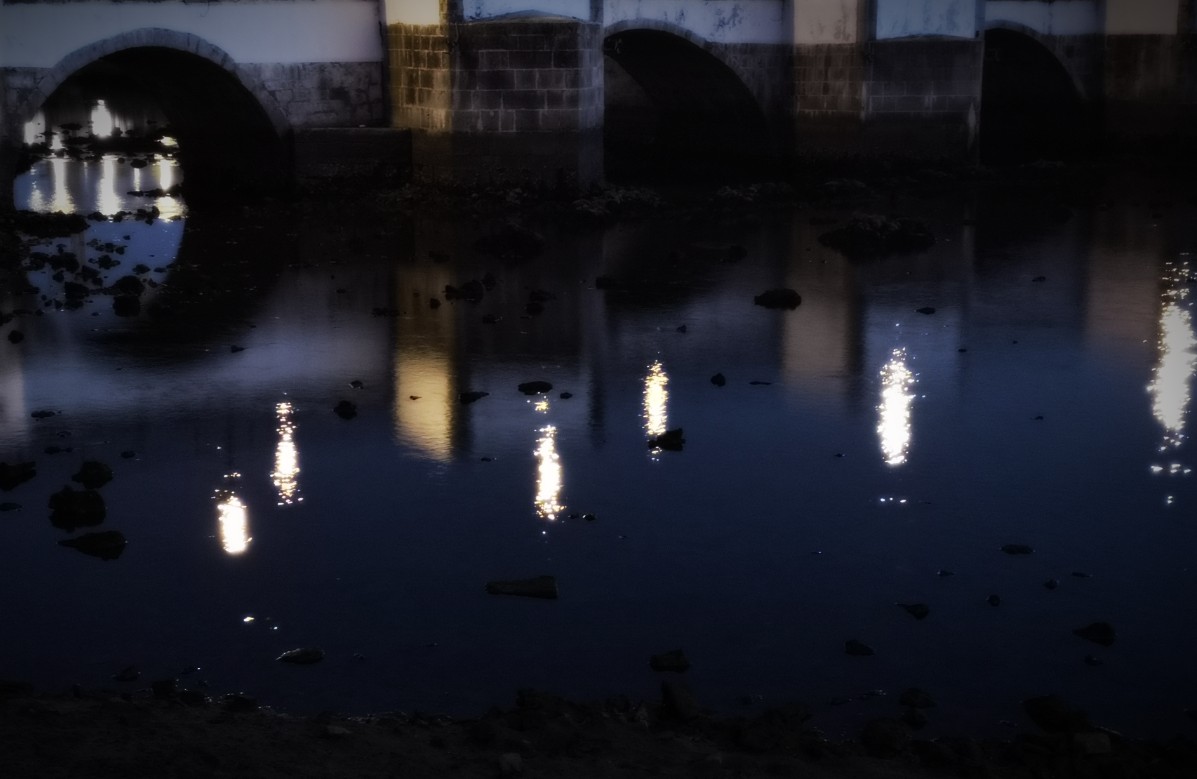
This is a tale told in fallen almond blossom on a salt-and-sweet river . . .
The night the Pilgrim told this story, floods closed roads and trees blocked lanes inland from the Chapel-in-the-Sands. Over the yelling wind, she welcomed a few storm-slapped listeners. She took their brined coats, shut the door against sandy draughts and put another log in the wood-burner.
‘I brought this legend back from a land where storks build messy crowns on chimneys of sardine factories,’ she said. ‘ A warm town of low whitewashed houses and blue tiles where songs and stories echo late into the jasmine-scented night. I heard it beside a bridge where bats flitter and hunt above dark waters – and it tells how the river has two names.’
Long after the Romans had left that bridge behind, the trade in salt still carried in on the town by the lagoon. Glittering pyramids of flavour beside the ponds meant the town was too precious to belong to only one ruler.
Wars were fought over the trade, though they said it was all for the one true god. At last, it was settled that one bank of the river belonged to those with crosses on their shields, and the other to those bearing crescent moons.
They made a border of the unnamed river; its smell changeable with the currents, its depth rising and falling with the moon. But that fickle, wavering barrier meant nothing to lovers.
A Moorish princess and a young knight of the king met by the oyster-clustered piers of the old bridge. They kept their faces hidden in the darkness. The clam collectors and the eel-fishers let the disguised pair be – what harm was there in it?
But someone told.
One night lit by a moon sharp as a scimitar, soldiers waited at both ends of the bridge. The turn of the tide made the waters still and charcoal-dark. Torches flared in the shadows. The lovers knew their fate as traitors. The princess Ségua, threw herself over the parapet facing the mountains, and Giláo the knight plunged towards the lagoon.
Their bodies were never found. To this day, the upstream river is the Ségua, and downstream, it is the Giláo. And still every tide, the sweet and the salt waters kiss under the ancient bridge.

“Their bodies were never found.” haunting. This is lovely and poignant x
Thank you, Susan. I enjoyed retelling a local tale from Tavira.
Beautiful story. Beautiful place!
Indeed it is, Malachy. Thank you for taking the time to read and comment.